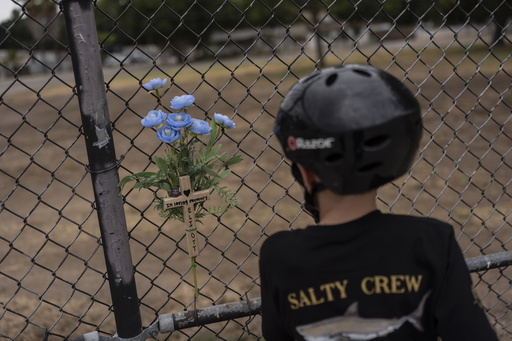Coco was a vibrant teenager who enjoyed fashion and entertained everyone around her with her jokes and pranks, according to her mother, Julianna Arnold. Tragically, two weeks after her 17th birthday, Coco met with a dealer she connected with through Instagram to buy Percocet, but she never made it back home. She was discovered deceased the next day, just two blocks away from where the dealer had directed her. It was later revealed that the pill she took was not Percocet but a counterfeit containing fentanyl, a highly potent drug.
Fentanyl overdoses have become a prevalent cause of death among minors over the past five years, despite a slight decrease in overall drug use. Recent reports indicate that a concerning number of fentanyl-laced prescription pills contain potentially lethal doses of the drug. Social media platforms such as Snap, TikTok, Telegram, and Meta Platforms (owner of Instagram) are under scrutiny for not doing enough to protect minors from accessing harmful substances.
The ease with which young individuals can obtain drugs on social media is a recurring issue. Parental supervision, therapy, and educational efforts have made a small impact on reducing accidental overdoses, but the availability of illicit substances on online platforms remains a significant concern. Acts like “Operation Last Mile” by the DEA have led to numerous arrests and drug seizures associated with social media transactions, particularly on platforms like Instagram.
The tragic stories of young individuals like Coco and Eli, who lost their lives due to accidental fentanyl overdoses after seeking drugs online, underscore the urgent need for stricter regulations and accountability on social media platforms. Despite efforts by companies like Meta to block illicit drug-related content, drug dealers continue to find ways to exploit these platforms for sales, posing a continuous threat to vulnerable users.
Parents like Julianna Arnold and Mikayla Brown, who have experienced the devastating loss of their children to fentanyl overdoses facilitated by social media, advocate for stricter regulations and increased accountability for tech companies. Proposed legislation like the Kids Online Safety Act aims to address harmful content targeting children but awaits further action in Congress. Despite these efforts, advocates stress the urgency for social media platforms to take more effective measures in ensuring a safer online environment for all users.


